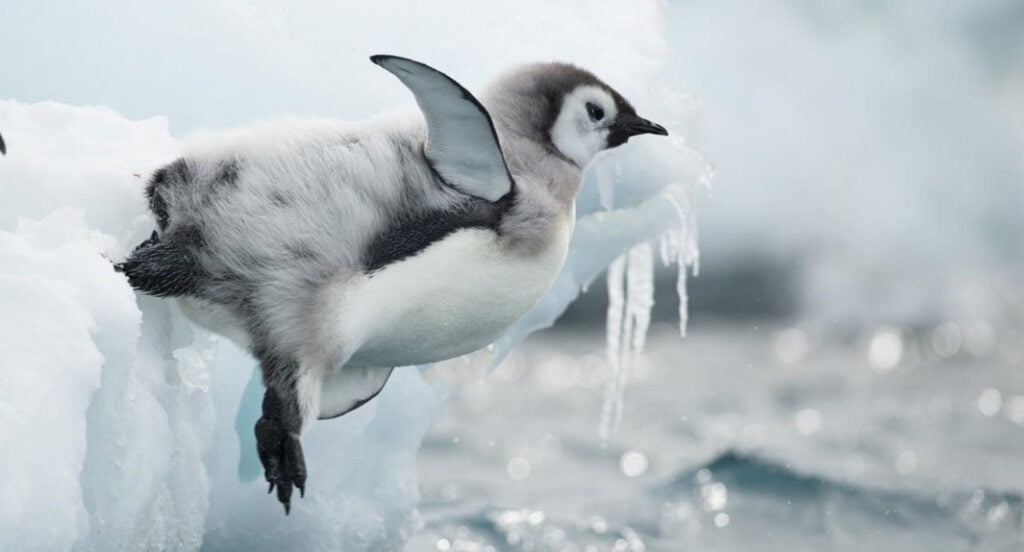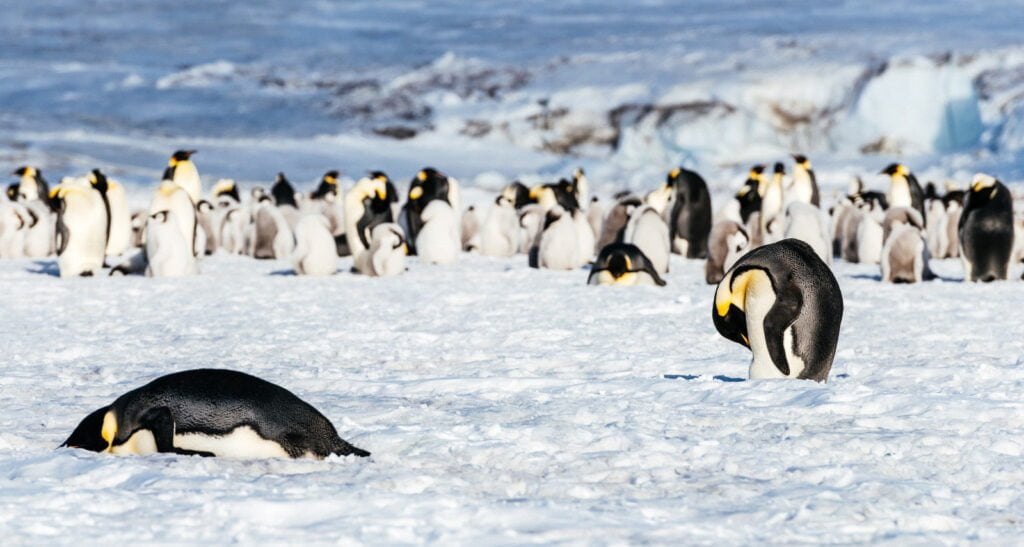A new study warns that emperor penguins are in danger of extinction. Can they be saved? Find out what’s happening
Last year, these iconic birds suffered an unusual reproductive failure due to record levels of sea ice and today emperor penguins are at risk of extinction.
Sea ice is essential to their survival, as they use these land-locked areas to breed and raise their young. However, sea ice reached an all-time low last year, especially in the Bellingshausen Sea west of the Antarctic Peninsula, where 100% loss was recorded in some areas.
In the Bellingshausen Sea region, almost all emperor penguin colonies experienced total breeding failure due to lack of adequate sea ice. This phenomenon had not been observed on this scale in previous seasons. Scientists also predict that, if global warming continues at the current rate, more than 80% of emperor penguin colonies could be on the brink of extinction by the year 2100.
These majestic penguins arrive at their breeding grounds in late March, and it is in May and June that they lay their eggs, which they incubate for approximately 65 days in the middle of the harsh Antarctic winter. The chicks remain on the ice until their fluffy down is replaced by waterproof feathers, and finally develop their plumages in the warm months of December and January.
However, according to research published in Nature Communications Earth & Environment, it has been revealed that sea ice is a critical element for the survival of these chicks. Using satellite imagery, it was clear that the sea ice was fragmenting before the young penguins had reached the necessary development to survive on their own.

Emperor penguins are at risk of extinction as sea ice levels in Antarctica reach historic lows
Emperor penguins have been in danger of extinction since 2015, with four consecutive years of declining sea ice extent in Antarctica. This has affected more than 30% of emperor penguin colonies in the area between 2018 and 2022. In addition, changes in ocean currents and in the stability of glaciers and ice shelves are observed, adding to the problem.
The impact is not limited to breeding, as emperor penguins also depend on sea ice for other vital activities, such as molting and protection from predators. Experts suggest limiting access to colonies, reclassifying the penguins as a vulnerable species and taking immediate action to address climate change.
The situation poses challenges for the future of emperor penguins. It is unknown whether the colonies in the Bellingshausen region will return to their usual breeding sites or seek new locations, as other colonies in similar situations have done. Emperor penguins have the ability to adapt to changes in their habitat, but the question is whether they will be able to do so regionally in an area as vast as the Bellingshausen Sea.
These penguins play a vital role in the Antarctic food chain and are an iconic species known to many people through documentaries and films. Their disappearance would have a significant impact on the ecosystem and on public awareness of biodiversity conservation.
Recommendations to protect emperor penguins include restricting access to colonies to minimize disturbance and pollution. In addition, it urges changing the classification of these birds from “near threatened” to “vulnerable” on conservation lists.

